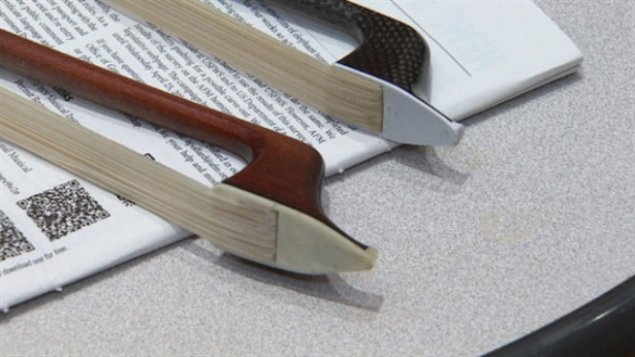Musicians, especially of classical music, have been rethinking plans to travel in or out of the United States.
Many of their instruments contain small bits of ivory and there is a fear they will be confiscated by US Customs. The order from the U.S. Fish and Wildlife Service is meant to crack down on the illegal sale of African elephant ivory, but has created a new problem for travelling symphonies and individual players.

Earlier this week, an Edmonton double -bass player studying in the US, had to cancel an audition with the Winnipeg Symphony over fears his bow, tipped with ivory, would be confiscated upon his re-entry to the US. It has shattered his dream, but Taddes Korris says, “It feels awful, but I just couldn’t take the risk of having my bow seized. I spent a lot of my savings on it, and to a musician the bow and your instrument is like a child to you.”
It’s all because of a new US law that came into effect in February which bans the transport of ivory products into or out of the US,
Ivory is used in piano keys, but also in bows for stringed instruments and in some wind instruments like bassoons.
Instruments made or purchased after 1976 containing ivory cannot be moved out of, or into the US. There are exemptions, for “pre-ban” ivory, but musicians have to go through a complicated process requirind documentation for a certification under the Convention on International Trade in Endangered Species (CITES), and pay a fee. This has prompted many musicians both in the US and outside to reconsider performances.
Those who can’t provide documentation for the instrument, or who bought them after 1976 can no longer travel with them into or out of the US. Many say this will have a detrimental affect on their careers, and will lower the re-sale value of their instruments
Although so far, most of the concern has involved classical musicians ans their instruments, the ban should also be noted by guitarists of all types of music. Ivory has also been used as decorative inlay in guitars and possibly at the top (nut) and saddle of older high end guitars.







For reasons beyond our control, and for an undetermined period of time, our comment section is now closed. However, our social networks remain open to your contributions.